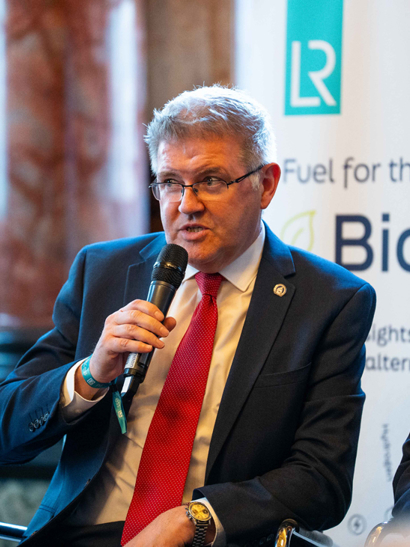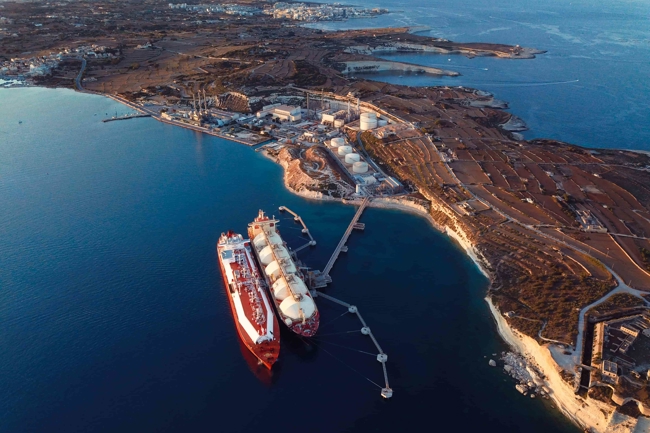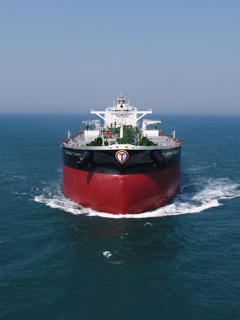Biofuels can be used as drop-in fuels in most ships operating today and represent an important avenue for shipping organisations to reduce their carbon footprint and get ahead of tightening international regulations without retrofits or new builds.
Certifying blended fuels, which contain proportions of both conventional fuels and biofuels, will become increasingly important thanks to increased clarity on their treatment under environmental regulations, while fuels lacking robust traceability pose risks to both regulatory compliance and safe operations.
According to the H1 fuel quality report from LR’s Fuel Oil Bunkering Analysis and Advisory Service (FOBAS), the diversity and quality of biofuels are growing. Uptake of FAME-based biofuel blends, notably B30 RF, is increasing across ports including Singapore, Algeciras and Antwerp. FOBAS testing to date has found no systemic operational issues with these blends, with most quality considerations linked to the conventional fuel components.
In April, LR’s Global Fuel Finder tool added biofuel availability and quality insights to the platform, helping users search, compare and analyse biofuels across global ports.
Growing demand
There are visible signs of progress. Earlier this year, operator John H Whitaker Tankers launched Whitchampion, the first bunker tanker certified to load, carry and blend FAME B100 biofuel on board. Here, class support and technical adaptations such as tank coatings and biofuel-compatible components helped to overcome regulatory challenges.
According to Ashley Jenkins, Director at John H Whitaker Tankers, speaking at LR’s Fuel for Thought Biofuel Briefing event at London International Shipping Week (LISW), the company will class all its bunker barges as hybrid bunker ship/chemical tankers to pre-empt future biofuel regulation.


Johannes Schurmann, Commercial Director at FincoEnergies, added that the number of biofuel customers has grown three to four times in the past two years, but volumes have grown more slowly, suggesting that many ship operators lift smaller amounts of biofuel for their regulatory compliance, rather than a few big ones for voluntary green shipping programs.
Biofuels are currently more expensive than fossil fuel alternatives, but this will change as new regulations take effect. The current market is concentrated around major hubs used by the largest consumers, with regional price variations and demand driven by ships exposed to EU regulations such as FuelEU Maritime, noted Ian Butler, Head of Energy Transition – Shipping at Vitol.
However, IMO’s Net Zero Framework is likely to change this should it come into force, with supply and price adapting to the newly globalised demand.
A maturing market
At the same event, Alberto Perez, LR’s Regional Advisory Lead, explained that from 1 January 2025, operators using fossil fuels other than LNG will face penalties under FuelEU Maritime. Those using LNG can extend compliance without penalties until 2035, while using high biofuel blends could add another five years of penalty-free operation.
Biofuels already offer measurable returns. Perez illustrated this with the example of a Panamax bulk carrier sailing from Brazil to Rotterdam. Under 2025 conditions, the vessel would face annual fuel and compliance costs of nearly US $450,000. Per trip, switching to a low biofuel blend would add around US $11,000 in fuel cost but save over US $22,000 in compliance charges, predominantly coming from FuelEU.
Given this potential, Perez forecasted that global maritime biofuel demand could easily triple by 2030 from 2024 figures, and more than double again by 2035. Demand will depend heavily on the availability of FuelEU surpluses, coming primarily from ships burning LNG whose over-compliance could potentially be pooled with other ships thus reducing the need for biofuels.
The impact of surpluses and pooling on compliance costs and fuel choices will need careful consideration. In one example, Schurmann described how LR advised FincoEnergies to establish a FuelEU pool that would trade its customers’ overcompliance to non-compliant vessels operating beyond its bunkering locations.


Fuel quality in focus
Biofuels must be used safely and consistently if the market is to have confidence.
LR FOBAS product manager Dr Muhammad Usman, also speaking as part of the Fuel for Thought Biofuel Briefing, highlighted some of the quality, compatibility and standardisation issues through an emerging biofuel, cashew nut shell liquid (CSNL).
While CSNL is more suitable for shipping than other transport sectors, has high emissions reduction potential, and competitive pricing, though it is chemically challenging. It can polymerise under high temperatures, is hard to ignite, hence it needs further processing to improve chemical and physical characteristics.
“Suppliers need to be very careful to make biofuel a suitable blend component, while each operator needs to consider the cost benefit, including impact on maintenance and operational challenges against cost and emissions potential,” said Usman.
He pointed to ongoing revisions to ISO 8217 on marine fuel quality to better accommodate biofuels, as well as FOBAS testing data showing that overall bunker fuel quality has held steady even as biofuel blends increase. This stability builds operator confidence, but vigilance is still needed as new feedstocks enter the market.
Regulatory clarity ahead
Recent updates from IMO have improved guidance on carrying biofuel blends by bunker ships, with interim guidelines outlining new requirements for alternative fuel systems, operational risk assessments, and the handling of biofuel blends.
Together, these developments create the conditions for biofuels to move from small-scale trials into mainstream use. With clear evidence of biofuel’s evolution from a voluntary decarbonisation measure to one that will be used at scale, the pieces are falling in place to make sure biofuels can be deployed effectively.



